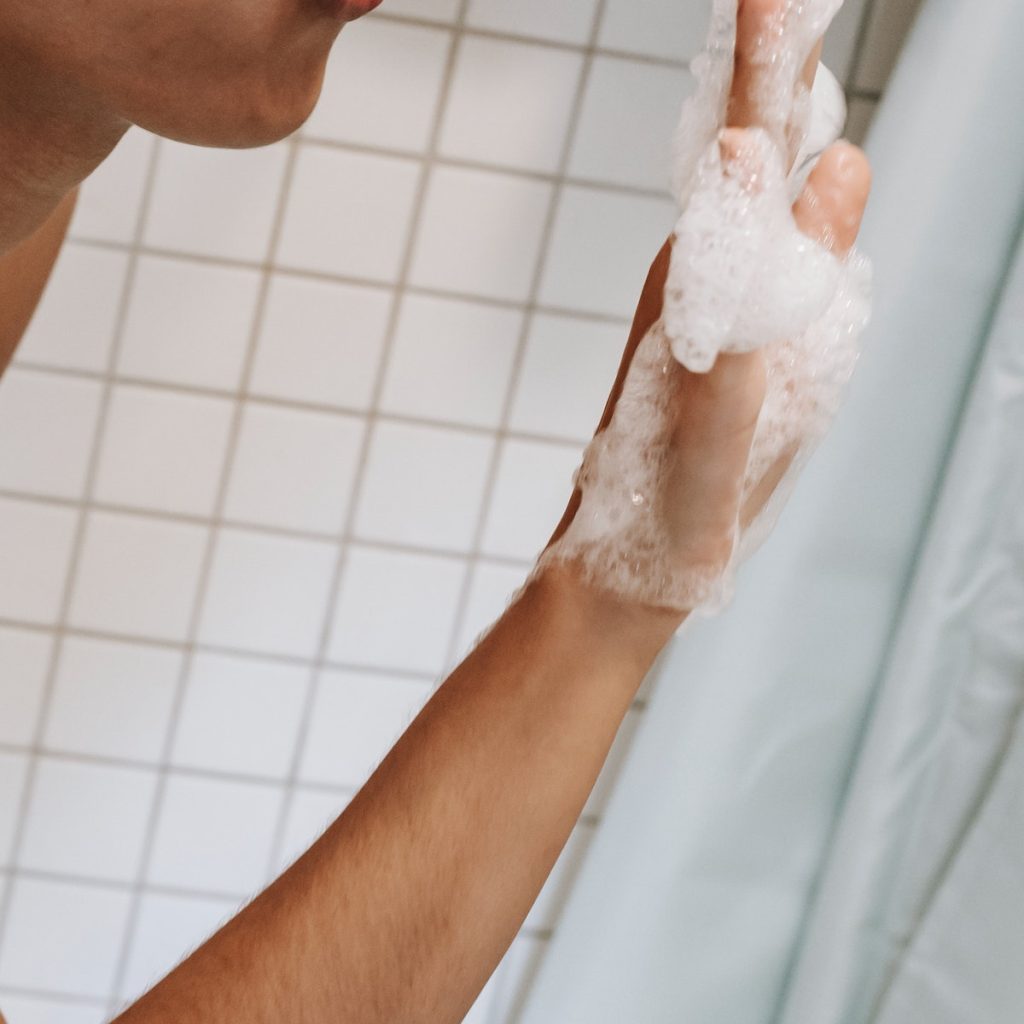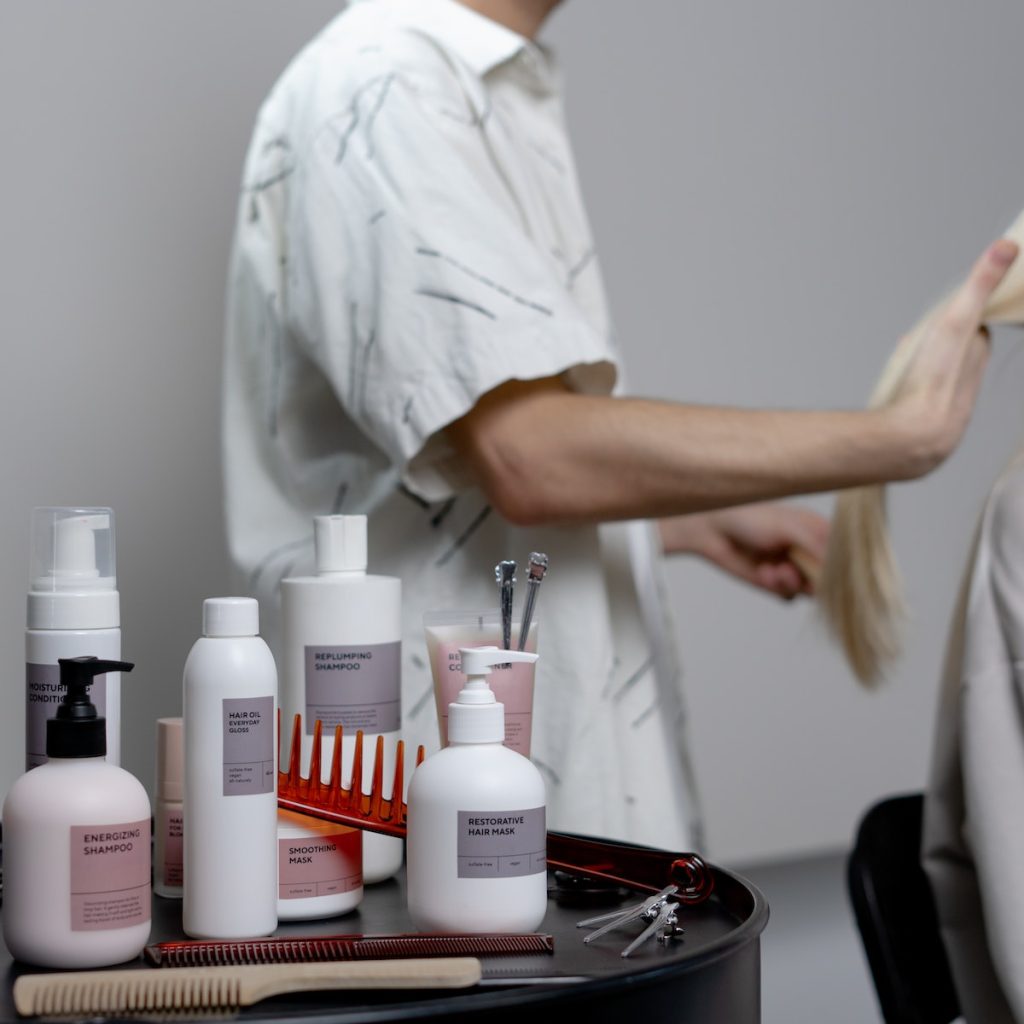Discover how sulfates can affect various hair types and address specific concerns.
How Sulfates Can Impact Different Hair Types and Concerns
Are you tired of having dry, frizzy hair? Are you frustrated with your hair color fading faster than a summer tan? Do your curls feel limp and lifeless? Well, my friend, sulfates may be the culprit behind all your hair woes! In this article, we will explore the fascinating world of sulfates and how they can impact different hair types and concerns. So sit back, relax, and let’s dive into the wonderful world of hair care!

Understanding Sulfates: A Brief Overview
Before we delve into the nitty-gritty of sulfates, let’s start with the basics. What exactly are sulfates? Well, sulfates are a group of detergents commonly used in hair care products such as shampoos and conditioners. They are responsible for that satisfying lather you get when you wash your hair.
Now, you might be wondering, what’s the big deal with sulfates? Well, my friend, sulfates can have a significant impact on your hair. So, let’s take a closer look at some common sulfates found in hair products.
What are Sulfates?
Sulfates are cleansing agents that help to remove dirt, oil, and product buildup from your hair and scalp. They are commonly derived from sulfur-containing mineral salts, hence the name sulfates. Some of the most common sulfates found in hair products include Sodium Lauryl Sulfate (SLS) and Sodium Laureth Sulfate (SLES).
Let’s dive deeper into Sodium Lauryl Sulfate (SLS). This sulfate is known for its powerful cleaning abilities. It is highly effective at removing dirt and oil from the hair and scalp, leaving them feeling fresh and clean. However, SLS can also be quite harsh and drying, especially for those with sensitive or dry hair. It can strip the hair of its natural oils, leading to dryness and potential damage.
On the other hand, Sodium Laureth Sulfate (SLES) is a milder sulfate compared to SLS. It is often preferred by those with sensitive skin or hair because it is less likely to cause irritation. SLES still provides effective cleansing but is gentler on the hair and scalp.
Common Sulfates Found in Hair Products
In addition to SLS and SLES, there are other sulfates that you may come across on hair product labels. These include Ammonium Lauryl Sulfate (ALS), Ammonium Laureth Sulfate (ALES), and Sodium Coco-Sulfate (SCS). Each of these sulfates has different properties and can have varying effects on your hair.
Ammonium Lauryl Sulfate (ALS) is similar to SLS in terms of its cleansing abilities. It is a strong detergent that effectively removes dirt and oil. Ammonium Laureth Sulfate (ALES), on the other hand, is a milder sulfate similar to SLES. It provides gentle cleansing while still maintaining effectiveness.
Sodium Coco-Sulfate (SCS) is derived from coconut oil and is often used as a natural alternative to traditional sulfates. It is considered to be a milder sulfate and is less likely to cause irritation or dryness. SCS provides gentle cleansing while still effectively removing impurities from the hair.
When it comes to choosing hair products, it’s important to consider the sulfates they contain. Some people may prefer to avoid sulfates altogether, especially if they have sensitive or dry hair. However, sulfates can still be beneficial for those who need a deep cleanse or have oily hair. It ultimately comes down to personal preference and the specific needs of your hair and scalp.
The Role of Sulfates in Hair Care
Now that we have a better understanding of what sulfates are, let’s explore their role in hair care. How do sulfates work in shampoos and conditioners, and what benefits do they provide? Let’s find out!
How Sulfates Work in Shampoos and Conditioners
Sulfates work by attracting oil and water, enabling them to cleanse your hair effectively. They break down the sebum, dirt, and product residue, allowing them to be rinsed away easily. This can leave your hair feeling clean and refreshed.
But how exactly do sulfates attract oil and water? Well, it all comes down to their unique chemical structure. Sulfates contain hydrophilic (water-loving) and lipophilic (oil-loving) properties. This means that when you apply a sulfate-based shampoo or conditioner to your hair, the sulfates are able to bind with the oils and dirt on your scalp and hair strands, making them easier to remove.
Additionally, sulfates can help to create that luxurious lather we all love. There’s something incredibly satisfying about seeing those bubbles dance through your hair! It’s like a mini spa session in your shower.
Have you ever wondered why sulfates are so good at removing dirt and oil? It’s because they are excellent surfactants. Surfactants are substances that lower the surface tension between two liquids or between a liquid and a solid. In the case of sulfates, they lower the surface tension between water and oil, allowing them to mix more easily. This is why sulfates are able to effectively cleanse your hair, leaving it feeling squeaky clean.
The Benefits of Sulfates in Hair Care
Sulfates can provide several benefits for your hair. They can effectively remove dirt, oil, and product buildup, leaving your hair feeling clean and refreshed. But their benefits don’t stop there!
One of the lesser-known benefits of sulfates is their ability to enhance the effectiveness of other hair care ingredients. You see, when you use a sulfate-based shampoo or conditioner, the sulfates help to open up your hair cuticles, allowing other beneficial ingredients to penetrate your hair shaft more easily. This means that any nourishing oils, vitamins, or proteins present in your hair care products can work their magic more effectively, resulting in healthier and more vibrant hair.
Furthermore, sulfates can be great for individuals with oily scalps. They can help to regulate sebum production and keep your hair from becoming greasy too quickly. So, if you’re prone to having an oily scalp, sulfates might just be your new best friend!
It’s important to note that while sulfates have their benefits, they may not be suitable for everyone. Some individuals with sensitive skin or dry hair may find that sulfates can be too harsh and stripping. In these cases, sulfate-free alternatives may be a better option.
So, the next time you reach for your favorite shampoo or conditioner, take a moment to appreciate the role sulfates play in keeping your hair clean and healthy. They may just be the secret ingredient that gives your hair that extra boost!
The Potential Negative Impact of Sulfates on Hair
While sulfates can provide some benefits, they may not be suitable for everyone. In fact, they can have a negative impact on certain hair types and concerns.
Sulfates and Dry Hair
If you have dry hair, sulfates can be your hair’s worst enemy. They have a tendency to strip away the natural oils in your hair, leaving it feeling dry, brittle, and prone to breakage. So, if you have dry locks, it’s time to bid farewell to sulfates and embrace a sulfate-free hair care routine!
Sulfates and Colored Hair
If you’ve recently splurged on a beautiful hair color or highlights, sulfates can be a real buzzkill. They can cause your color to fade faster than you can say “rainbow unicorn hair.” So, if you want to maintain that vibrant hue, it’s time to switch to sulfate-free hair products.
Sulfates and Curly Hair
Curly hair can be a challenge to tame, and sulfates certainly don’t help in that department. They can strip away your hair’s natural moisture, causing your curls to become frizzy, undefined, and downright unruly. If you want to embrace those luscious curls, it’s time to ditch the sulfates and opt for gentler alternatives.
Sulfate-Free Hair Care: Is It Right for You?
Now that we’ve explored the potential negative impact of sulfates, you might be wondering if sulfate-free hair care is the way to go. Let’s weigh the pros and cons and find out if it’s the right choice for you!
Pros and Cons of Sulfate-Free Hair Products
The main advantage of sulfate-free hair products is that they are much gentler on your hair. They are less likely to strip away your hair’s natural oils, making them ideal for those with dry or damaged locks.
However, sulfate-free products may not lather as much as their sulfate-containing counterparts. This can take some getting used to, but fear not! It doesn’t mean they’re not doing their job. They’re just being gentle and leaving your hair soft and nourished.
How to Transition to Sulfate-Free Hair Care
If you’re ready to take the plunge and switch to sulfate-free hair care, here are a few tips to help you make a smooth transition:
- Start by gradually cutting back on sulfates. Instead of going cold turkey, try alternating between sulfate-containing and sulfate-free products.
- Look for sulfate-free alternatives that contain natural and nourishing ingredients such as aloe vera, argan oil, and shea butter.
- Be patient. It may take some time for your hair to adjust to the new routine. Give it a few weeks before making any final judgments.
Expert Tips for Choosing the Right Hair Products
Choosing the right hair products can be like finding a needle in a haystack. With so many options available, it’s easy to get overwhelmed. Luckily, we have some expert tips to help you navigate the hair care aisle with confidence!

Understanding Hair Type and Choosing Products Accordingly
One of the most important factors to consider when choosing hair products is your hair type. Different hair types have different needs and require specific products to keep them looking their best. Whether you have straight hair, wavy locks, or tight coils, there’s a perfect product out there for you!
Tips for Reading Hair Product Labels
Reading hair product labels may feel like deciphering secret codes, but fear not! We have some tips to help you become a label-reading pro:
- Look for keywords like “sulfate-free,” “paraben-free,” and “silicone-free.” These indicate that the product is gentle and free from potentially harmful ingredients.
- Pay attention to the order of ingredients. The first few ingredients make up the majority of the product. So if a beneficial ingredient is listed near the end, it may not be present in large enough quantities to make a significant difference.
- Don’t be swayed by fancy marketing claims. Just because a product promises to give you Rapunzel-like hair doesn’t mean it actually will. Look for products with evidence-backed claims and positive customer reviews.
Armed with these expert tips, you’re now ready to conquer the world of hair care and choose products that will give you the luscious locks of your dreams!
Conclusion
And there you have it, a deep dive into the impact of sulfates on different hair types and concerns. Whether you decide to embrace sulfates or opt for sulfate-free alternatives, the choice is ultimately yours. Take the time to understand your hair’s needs, experiment with different products, and listen to what your locks are telling you.
Remember, hair care is not a one-size-fits-all approach. So don’t be afraid to mix things up, try new products, and have fun on your journey to healthier, more fabulous hair!





